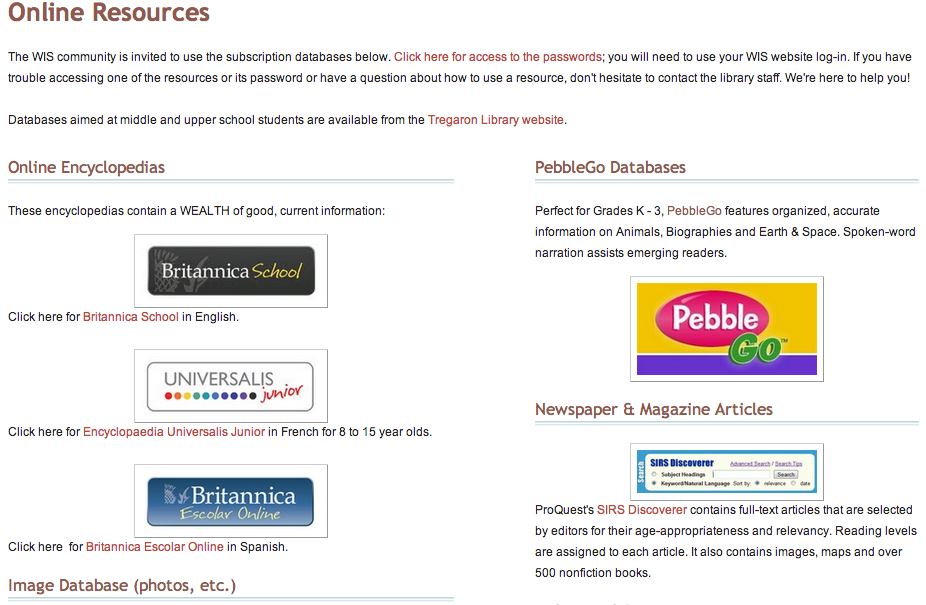Is your library Web site your “go-to” place for student researchers? We constantly remind our students via our ICL lessons that there are better ways to find valid and helpful information than Google searches. Especially in elementary school, we want to provide our students with various online databases and resources that give them a safe place to learn how to find information. With schools spending so much on online subscriptions, finding ways to guide our students to use the databases makes total sense.
Thankfully we have an incredible librarian at the primary campus of Washington International School who manages a terrific library Web site and promotes the tools within the site. Sue Anderson, our librarian, keeps very busy with her staff managing a collection in four languages while teaching our Information and Communication Literacies (ICL) curriculum. Sue annually promotes the library site and the databases during one of our Wednesday faculty PD meetings.
This year Sue included the following in her learning session:
- A few Web sites need Flash, so Sue had all the laptops on one of our carts updated with Flash telling teachers not to bring their laptops. The last thing anyone needed would be the disruption of teachers being unable to access Web site sections due to a lack of a plug-in.
- A brief review of all the databases and some of their features. Sue provided a copy of her presentation in a handout that had space for teachers to take notes beside each presentation slide.
- Sue provided plenty of time for teachers to explore the databases. She had them sit together by language to share ideas as they reviewed the tools.
- The handout packet also listed the user names and passwords for all the online tools. Teachers also took time to fill out the exit survey to turn in at the end of the session. They were asked to put check marks for each of the tools they currently use and for the ones they plan to use more fully with their students.
Look to review the Primary School Library Web site. Do note that the language pages are under development. I am working with our language teachers to populate those pages with educational sites for our students.





